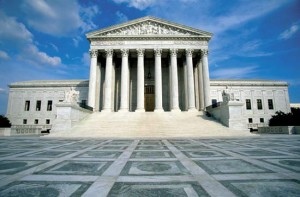On Wednesday, June 25, 2014, the United States Supreme Court unanimously ruled that police officers are required to obtain a search warrant to search the cell phones of the people they arrest. The Supreme Court was confronted with this issue in two cases: David Leon Riley v. California and United States v. Brima Wurie. In each of these cases, an individual was arrested and pursuant to that arrest each of their cell phones were searched. In their ruling, the Supreme Court made no distinction between a modern smart phone, which was being used by Riley, and an outdated flip phone, which was being used by Wurie. In writing the opinion, John G. Roberts, Jr. framed the issue presented to the Supreme Court:
“These cases require us to decide how the search incident to arrest doctrine applies to modern cell phones, which are now such a pervasive and insistent part of daily life that the proverbial visitor from Mars might conclude they were an important feature of human anatomy.”
In rejecting the United States’ assertion that the search of data on a cell phone is the same as searching physical items on a person such as a wallet or address book, the Supreme Court held:
“The United States asserts that a search of all data stored on a cell phone is ‘materially indistinguishable’ for searches of these sorts of physical items… That is like saying a ride on horseback is materially indistinguishable from a flight on the moon. Both are ways of getting from point A to point B, but little else justifies lumping them together. Modern cell phones, as a category, implicate privacy concerns far beyond those implicated by the search of a cigarette pack, a wallet, or a purse…. Cell phones differ in both the quantitative and qualitative sense from other objects that might be kept on an arrestee’s person. The term ‘cell phone’ is itself misleading shorthand; many of these devices are in fact minicomputers that also happen to have the capacity to be used as a telephone. They could just as easily be called cameras, video players, rolodexes, calendars, tape recorders, libraries, diaries, albums, televisions, maps, or newspapers…”
Finally, in summarizing its opinion, the Supreme Court held:
“Modern cell phones are not just another technological convenience. With all they contain and all they may reveal, they hold for many Americans the ‘privacies of life’… The fact that technology now allows an individual to carry such information in his hand does not make the information any less worthy of the protection for which the Founders fought. Our answer to the question of what police must do before searching a cell phone seized incident to an arrest is accordingly simple – get a warrant.”
In the digital age, this opinion and ruling is the first regarding search of any digital information, whether it be on cell phones or computers, and is indicative of a trend to recognize that cell phones are now one of the most prized possessions of Americans and are not only used as telephones anymore, but are used to organize one’s entire life. You can read the entire opinion, which references visitors from Mars and a flight to the moon, here: http://www.supremecourt.gov/opinions/13pdf/13-132_8l9c.pdf


